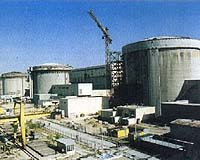 |
Washington DC (SPX) Apr 28, 2011 Even before the disaster in Fukushima, the world's nuclear industry was in clear decline, according to a new report from the Worldwatch Institute. The report, which Worldwatch commissioned months before the Fukushima crisis began, paints a bleak picture of an aging industry unable to keep pace with its renewable energy competitors. "The industry was arguably on life support before Fukushima. When the history of the nuclear industry is written, Fukushima is likely to begin its final chapter," said Mycle Schneider, lead author of the new report, The World Nuclear Industry Status Report 2010-2011: Nuclear Power in a Post-Fukushima World, and an international consultant on energy and nuclear policy. Some of the report's key findings include: + Annual renewable capacity additions have been outpacing nuclear start-ups for 15 years. In the United States, the share of renewables in new capacity additions skyrocketed from 2 percent in 2004 to 55 percent in 2009, with no new nuclear capacity added. + In 2010, for the first time, worldwide cumulative installed capacity from wind turbines, biomass, waste-to-energy, and solar power surpassed installed nuclear capacity. Meanwhile, total investment in renewable energy technologies was estimated at $243 billion in 2010. + As of April 1, 2011, there were 437 nuclear reactors operating in the world, seven fewer than in 2002. In 2008, for the first time since the beginning of the nuclear age, no new unit was started up. Seven new reactors were added in 2009 and 2010, while 11 were shut down during this period. + In 2009, nuclear power plants generated 2,558 Terawatt-hours of electricity, about 2 percent less than the previous year. The industry's lobby organization The End of Nucleard "another drop in nuclear generation"-the fourth year in a row. Despite predictions in the United States and elsewhere of a nuclear "renaissance," the report concludes that the role of nuclear power was in steady decline even before the Fukushima crisis. The disaster will make the construction of new nuclear plants and extensions to the lifetime of current plants even more unrealistic. "U.S. news The End of Nuclears often suggest that a nuclear renaissance is under way," said Worldwatch President Christopher Flavin. "This was a big overstatement even before March 11, and the disaster in Japan will inevitably cause governments and companies that were considering new nuclear units to reassess their plans. The Three Mile Island accident caused a wholesale reassessment of nuclear safety regulations, massively increased the cost of nuclear power, and put an end to nuclear construction in the United States. For the global nuclear industry, the Fukushima disaster is an historic-if not fatal-setback."
Share This Article With Planet Earth
Related Links Worldwatch Institute Nuclear Power News - Nuclear Science, Nuclear Technology Powering The World in the 21st Century at Energy-Daily.com
 Romania seeks private money to build nuclear plant
Romania seeks private money to build nuclear plantBucharest (AFP) April 27, 2011 Romania wants to attract private investors to modernise its road infrastructure and to build two new reactors at the Cernavoda nuclear plant, Prime Minister Emil Boc said Wednesday. "The government wants to resort to public-private partnerships in order to launch infrastructure works not benefitting from public money or European funds," Boc told a press conference. He said the list inclu ... read more |
|
| The content herein, unless otherwise known to be public domain, are Copyright 1995-2010 - SpaceDaily. AFP and UPI Wire Stories are copyright Agence France-Presse and United Press International. ESA Portal Reports are copyright European Space Agency. All NASA sourced material is public domain. Additional copyrights may apply in whole or part to other bona fide parties. Advertising does not imply endorsement,agreement or approval of any opinions, statements or information provided by SpaceDaily on any Web page published or hosted by SpaceDaily. Privacy Statement |